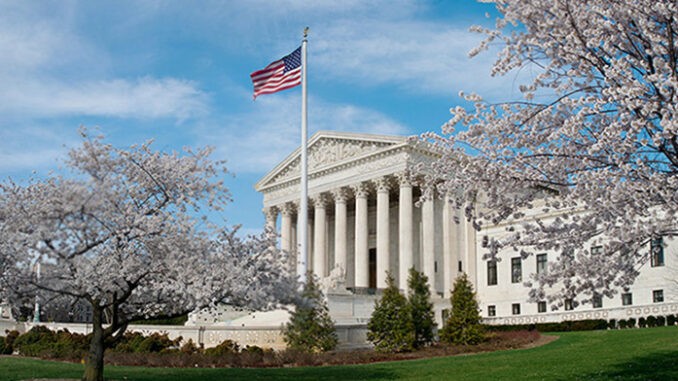
Congress is scheduled to certify the U.S. Electoral College votes on Jan. 6, but at least three lawsuits are still alive related to the 2020 General Election in Arizona, including two filed with the U.S. Supreme Court.
Last week the U.S. Supreme Court set a Jan. 14 deadline for Arizona’s 11 Democratic Electors to respond to an emergency petition for writ of certiorari filed by Arizona GOP Chair Kelli Ward. The deadline is more than one week after Congress meets to certify Biden’s 306 electoral votes and less than one week before Inauguration Day.
Ward’s petition seeks expedited review of decisions by a Maricopa County judge and the Arizona Court of Appeals which found Ward failed to present evidence that misconduct, fraud, or illegal votes contributed to former Vice President Joe Biden’s 10,457 vote victory over President Donald Trump.
The U.S. Supreme Court has also been asked to take up a federal case filed by the 11 Republicans who were chosen to cast Arizona’s electoral votes for Trump if he had bested Biden in the state. That case sought a court order compelling Gov. Doug Ducey and Secretary of State Katie Hobbs to decertify Biden’s win based on multiple allegations of election fraud and misconduct.
A federal judge ruled the claims by the Republican electors -one of whom is Ward- were “implausible.” No deadlines have been announced yet by the U.S. Supreme Court.
According to the Clerk of the U.S. Supreme Court, more than 7,000 requests for review are filed each year but only about 100-150 are accepted.
“The Court usually is not under any obligation to hear these cases, and it usually only does so if the case could have national significance, might harmonize conflicting decisions in the federal Circuit courts, and/or could have precedential value,” the Court’s website states, noting that under the Court’s rules, four Justices must vote to accept a case.
In Ward’s case against the Democratic electors, attorney Jack Wilenchik cites the historic Bush v. Gore election case from 2000, arguing that Ward’s due process rights required an orderly and full judicial review of any disputed matters that might arise in an election. She is asking for the Electoral Count Act’s “safe harbor” deadline to be declared an unconstitutional restriction on a state’s authority to resolve litigation surrounding its presidential electors.
She also seeks more time for inspection of duplicated ballots in Maricopa County regardless of the deadlines in the Electoral Count Act. That part of Ward’s case stems from a stipulation between county officials and Ward’s attorney for the review of a sampling of 2,500 duplicated ballots.
However, only 1,626 of the sampling could be reviewed before Judge Randall Warner convened an accelerated evidentiary hearing. The judge explained he wanted to ensure his ruling could be rendered -and an appeal made to the Arizona Supreme Court- before Dec. 14, the date Arizona’s 11 electoral votes were to be cast.
In the meantime, another election case has made it to the Arizona Supreme Court.
Last week the state’s high court accepted an expeditated appeal from Staci Burk, an Arizona resident who sued in Pinal County Superior Court to overturn the state’s election results, citing many of the same claims put forth in other lawsuits, including the two at the U.S. Supreme Court.
Burk’s lower court case was dismissed by Judge Kevin White on multiple grounds, including the fact Burk had not been registered to vote in the general election. But on Dec. 18 a scheduling order was issued by Justice William Montgomery of the Arizona Supreme Court.
The order gives Burk until Noon on Dec. 22 to file her opening appellate brief. That gives Ducey and Hobbs until Noon on Dec. 24 to file any answering brief. Burk will have an opportunity to file a reply brief no later than Noon on Dec. 28, after which the justices will consider the matter without oral arguments.
